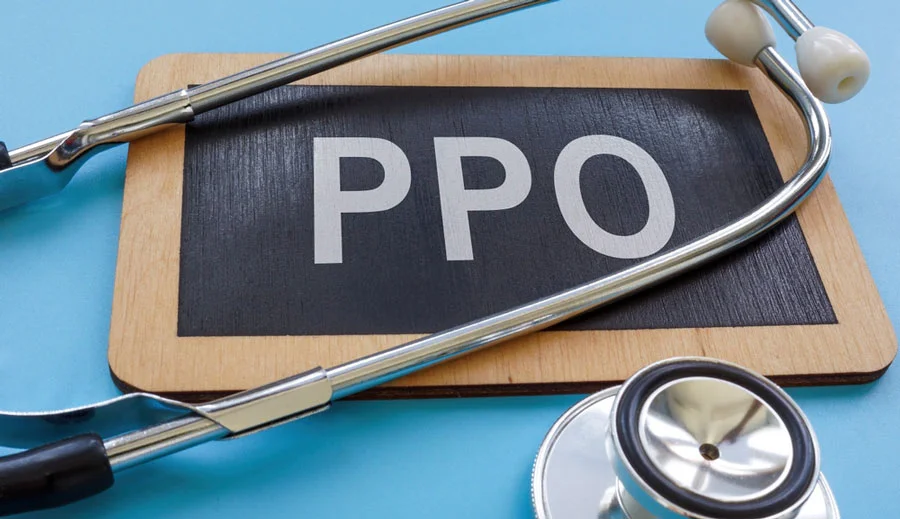Using a PPO Policy for Substance Abuse Treatment
Substance abuse treatment is a critical part of the recovery process for individuals struggling with addiction. It can be expensive, but fortunately, there are various forms of health insurance plans available that can help cover the costs.
One such option is Preferred Provider Organization (PPO) health insurance policy (as opposed to a health maintenance organization, or HMO), which can be an effective way to pay for substance abuse treatment.
Here’s what you need to know about PPO insurance rehab policies for addiction treatment and how Catalina Behavioral Health can help you or a loved one find recovery without breaking the bank!
What is a PPO Insurance Plan?

A PPO plan usually has two components: an in-network provider and an out-of-network provider. The in-network provider is the one that offers its services at a lower rate negotiated by the insurer.
As long as you go to one of these doctors or facilities, you will be able to receive treatment for drug and alcohol use at a lower rate than if you were to seek care from an out-of-network insurance provider.
The out-of-network provider is not part of the insurer’s network but will still accept your policy if they choose to do so. This means that you may be responsible for paying more for care received from this doctor or facility since their rates are not predetermined by the insurer like those in their network are.
However, some insurance companies have policies that cover some, if not all, of the cost of care received from out-of-network healthcare providers once you hit a certain amount. It’s important to read through your policy materials carefully so that you know what your substance abuse coverage looks like before seeking treatment from either kind of provider.
At Catalina Behavioral Health, our dedicated Admissions staff are able to review your policy and can let you know deductible details and coverage within minutes.
Get Help Now with Your PPO Plan!
Types of Drug Addiction and Alcohol Treatment Covered by Preferred Provider Organization (PPO) Plans
The Affordable Care Act, also known as Obamacare, has made addiction a treatable illness. Because of this, many insurance companies provide Preferred Provider Organization (PPO) coverage for those who suffer from substance abuse.
A Preferred Provider Organization (PPO) insurance plan offers flexibility in terms of where you can access treatment. It is important to understand what type of coverage your plan offers so you can receive the help you need. Here, we will break down the different types of drug and alcohol treatment most often covered by PPO plans. The exact treatment coverage offered is dependent on your specific plan and your plan’s network.
Detoxification

Detoxification is a medically supervised process that helps individuals manage withdrawal symptoms when they stop using drugs or alcohol. A detox may be necessary before starting other forms of substance abuse and mental health disorder treatment. The goal is to safely manage the uncomfortable side effects of withdrawal from drugs or alcohol in order to establish a foundation for recovery. Many PPO plans cover detox services at an in-network treatment center.
Inpatient Residential Treatment
Inpatient care involves living at a residential treatment center for a period of time while receiving intensive treatment for substance use disorders. Inpatient rehab typically includes individual therapy, group therapy, educational classes, counseling with family members, and 12-step meetings — all under the supervision of medical professionals who can help treat addiction.
Most PPO insurance coverage includes inpatient treatment when it is provided at an in-network drug and alcohol rehab center. Also, if relapse has been a part of your history (or that of a loved one) insurance, and PPO plans in particular, will often provide coverage for multiple stays in a rehab setting.
Outpatient Treatment Programs

Outpatient addiction treatment services are offered through clinics that specialize in providing drug rehab treatment services on an outpatient basis. This type of care may include individual counseling sessions, group therapy sessions, or other evidence-based treatments such as cognitive behavioral therapy (CBT). Many PPO plans may provide coverage for these services, at least in part, if they are provided at an in-network clinic or facility.
Medication
Medication-assisted treatment (MAT) combines medication with counseling and behavioral therapies to treat substance use disorders such as opioid addiction and alcoholism. MAT has been proven effective in helping individuals overcome their addictions and maintain sobriety over the long term. Most PPO plans cover MAT when it is administered at an in-network drug abuse and mental health facility by licensed healthcare providers.
Important PPO Insurance Coverage Terms to Understand
With the rise in mental health issues and substance use disorders, understanding health insurance companies and your coverage is more important than ever. But with all of the jargon and technical terms associated with insurance, it can be hard to know what you’re signing up for.
Let’s break down some of the key terms related to PPO insurance plans so that you can make an informed decision about the insurance coverage that best fits your needs.
In Network vs Out of Network Providers
When you are looking at a healthcare plan, there will usually be two types of providers: in-network providers and out-of-network providers. In-network provider refers to any provider that has agreements with your insurer and is included as part of your coverage.
Out-of-network insurance providers are any provider who does not have an agreement with your insurer and their services may not be covered. Some plans have out-of-network coverage once you hit a certain out-of-pocket limit. It is important to know which type of provider you are seeing before receiving services as there could be costs associated with using an out-of-network insurance provider.
At Catalina Behavioral Health we do everything in our power to make such costs as low as possible, and though we may be out of network with providers such as Harvard Pilgrim, our rates are often comparable (or lower) than other options for care in Arizona.
Out-of-Pocket Expenses & Yearly Deductible

Another term you may hear when discussing health plans is “out-of-pocket expenses” and “yearly deductible”. Out-of-pocket costs refer to expenses for medical care that are not reimbursed by insurance companies such as co-pays or coinsurance.
The yearly deductible is the amount you must pay during a calendar year before your insurance will begin covering the cost of care. Usually, higher deductibles mean lower monthly premiums but higher out-of-pocket costs if there is a medical issue early on in the year.
Out of Pocket Maximums for PPO Rehab Coverage
An out-of-pocket maximum works by limiting the amount you have to pay out of pocket each year for healthcare expenses. Your insurance company will typically set this limit on an annual basis as part of your health plan’s coverage. Once you reach this limit, the insurance company will cover any remaining costs related to covered health care services or treatments during that period.
Partial Coverage
Partial coverage is when your health insurance plan covers only some of your medical expenses related to the addiction treatment process. For example, your insurance carrier may cover medication-assisted therapy (MAT) or part of an inpatient stay at a rehab center, but not the entire cost of that stay or other treatments such as individual counseling sessions or aftercare programs.
Up to 100% of Treatment Costs Covered by Insurance
Co-Insurance
Co-insurance refers to how much each party (you and your insurance company) pays for covered medical services after you meet your deductible or pay any copayment/coinsurance required by your policy.
Co–insurance usually works like this: You pay a percentage (for example 20%) for covered medical services for each claim until you reach your out–of–pocket maximum limit (let’s say $5,000). Once this limit has been reached, most plans will then cover 100% of allowable charges for covered medical services and treatment options for the rest of that calendar year.
It’s important to understand co–insurance because it affects how much money you’ll need to pay out–of–pocket for healthcare services even after meeting your yearly deductible amount (if applicable).
There is a lot involved when selecting a Healthcare Plan, and making sure you understand all aspects involved will help you make more informed decisions about your care options and ultimately save you time and money in the long run.
The Benefits of PPO Insurance Plans
The main benefit of using a PPO policy for addiction treatment is that it offers more flexibility than other types of health insurance plans. For example, if you have a traditional HMO plan, you may need to get referrals from your primary care doctor in order to see certain specialists – including addiction specialists – but with a PPO plan, you don’t have the same limits.
How To Pay for Addiction Treatment When Insurance Won’t Cover It

If you or someone you love is in need of addiction treatment, the last thing you want to hear is that your insurance won’t cover it. Fortunately, there are sometimes other ways to pay for treatment, even if your insurance doesn’t cover it. Let’s look at some of the ways you can still afford quality care.
Payment Plans
Most addiction treatment centers will offer payment plans, so ask about them when researching facilities. Having a payment plan in place allows you to spread out costs over time and make them more manageable. Ask about any fees associated with setting up a payment plan, as well as whether there are any interest charges applied.
SAMHSA Grants
The Substance Abuse and Mental Health Services Administration (SAMHSA) offers grants for people who have limited financial resources and need help paying for treatment. These grants can be used to pay for the cost of outpatient or residential programs but usually cannot be used for medication-assisted treatments such as Suboxone. SAMHSA grants are available throughout the United States and can often be used in conjunction with other forms of financial assistance such as private health insurance or Medicare/Medicaid coverage.
Sliding Scale Fees
Many addiction treatment centers offer sliding scale fees based on your income and financial situation. Sliding scale fees provide an affordable option for those who may not qualify for other forms of financial assistance like insurance or SAMHSA grants but still need help paying for treatment services. Be sure to ask the treatment facility if they offer sliding scale fees before making any commitments.
Addressing addiction is hard enough without worrying about how to pay for it too! But, having a comprehensive understanding of your options is key to finding a way forward—even when faced with limited resources or insurance coverage issues.
Treatment Options for Substance Abuse and Mental Health

At Catalina Behavioral Health, we understand that addiction and mental health issues are complex and require specialized treatment programs. That’s why our experienced counselors provide a range of therapeutic services tailored to meet each individual’s needs. We offer evidence-based practices that have been proven to be effective in treating addiction and mental health issues.
We also offer comprehensive aftercare planning so that individuals can continue to receive the support they need even after leaving our rehab centers. This includes helping them find resources in their local community, connecting them with 12-step programs like AA or NA, and providing referrals for additional counseling services if needed.
Verify Your Insurance Coverage – Free & Confidential
Get Rehab Services Using Your PPO Plan Now!
Navigating insurance coverage can be complicated and time-consuming; that’s why we have staff members dedicated to helping individuals understand their specific benefits and options when it comes to receiving treatment for substance abuse or mental health disorders.
Our knowledgeable staff is available to answer any questions about insurance verification and billing services related to mental health services and other treatments so that our clients can focus on getting the help they need without worrying about paperwork or bureaucracy.
All calls are completely confidential, so please reach out now for options!




